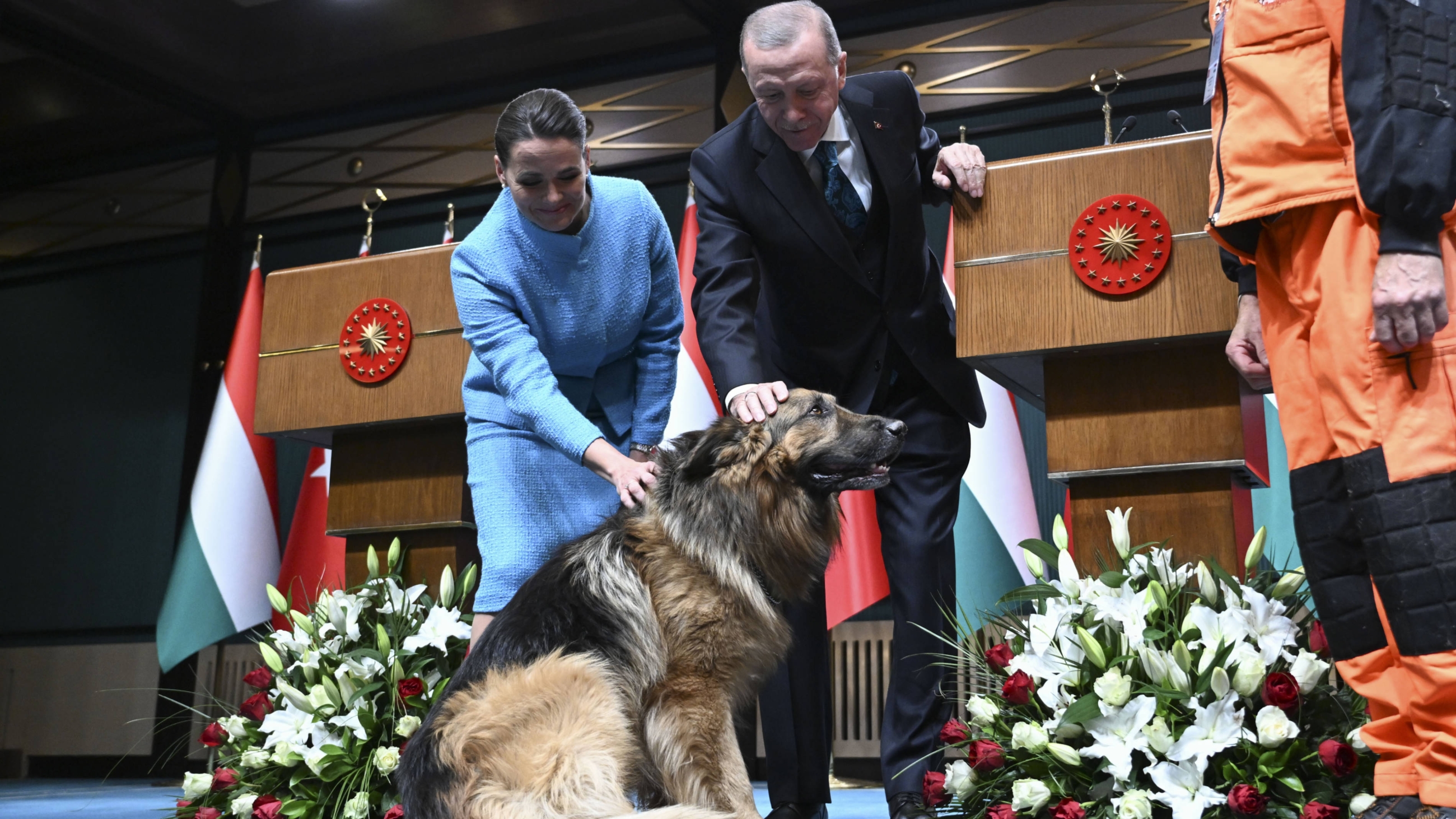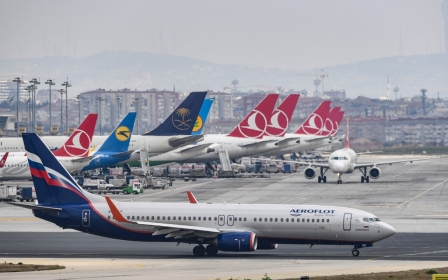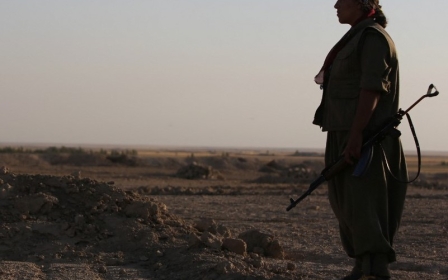Is Hungary holding up Sweden's Nato bid in coordination with Turkey?

When Turkish President Recep Tayyip Erdogan declared last year that he would not approve Finland and Sweden’s membership of the North Atlantic Treaty Organisation (Nato), Europe was quick to fire criticism towards Ankara.
But one country did not react: Hungary.
One by one, every other Nato member ratified the membership of the two Scandinavian countries, except for Turkey and Hungary. Once Erdogan decided this month to approve Finland’s bid, Hungary followed suit, passing it through parliament even before the Turks had done.
This has naturally triggered questions. Was there any coordination between Ankara and Budapest on the Nato expansion?
One European ambassador told Middle East Eye that some European allies suspect direct cooperation between the two nations. Meanwhile, a Turkish official familiar with the matter said that there is nothing official going on.
New MEE newsletter: Jerusalem Dispatch
Sign up to get the latest insights and analysis on Israel-Palestine, alongside Turkey Unpacked and other MEE newsletters
"Of course, they were popping up from time to time and asking about our time frame regarding the process," the official told MEE. "It appears like there is coordination but actually nothing is formal."
Finland and Sweden dropped decades of military non-alignment and applied to join the US-led defence alliance in response to Russia's invasion of Ukraine.
Erdogan's main objection to this had been that Sweden refused to extradite dozens of suspects that Ankara links to outlawed Kurdish militants and a failed 2016 coup attempt.
However, insiders in Ankara say that the real issue was the informal Finnish arms embargo against Turkey, which was lifted last year.
Helsinki and Stockholm also signed a trilateral memorandum with Ankara in June last year in which they promised to alleviate the latter's concerns regarding groups it views as terrorists that are based in the two countries.
It is no secret that Hungarian Prime Minister Viktor Orban enjoys a close relationship with Erdogan.
Multiple sources familiar with their personal relationship say they get along well.
They cooperate well together, and there are no bilateral disagreements between the two countries., sources say.
Orban is frequently in touch with Erdogan, especially on the sidelines of the Organisation of Turkic States summits, of which Hungary is a member due to its Turkic heritage.
"Under the leadership of President Erdogan, great and wonderful developments have taken place in Turkey in the last 10 years," Orban said earlier this month in Istanbul. "He is the only person who has successfully negotiated between Russia and Ukraine. We are grateful to President Erdogan."
One Hungarian official familiar with the Nato negotiations told MEE that Budapest held up Finland and Sweden’s membership because they respect Turkey’s security concerns and believe Nato members should get the support they deserve under a military alliance.
"We told everyone that we wouldn’t be the last country among the 30 member states to ratify their membership," the official said. "And we upheld our promise and ratified Finland’s membership."
Orban himself said last November that Hungary supports Finland and Sweden's bids to Nato and they did not lose "a single minute of membership" because of Budapest.
Orban's own game
Ongoing tensions between Hungary and Sweden also come into play.
Hungarian government spokesperson Zoltan Kovacs said on Thursday that Hungary is holding up Stockholm’s admission to Nato because of past grievances.
Swedish representatives "have been repeatedly keen to bash Hungary through diplomatic means, using their political influence to harm Hungarian interests," he said, referring to Stockholm's criticism over the erosion of the rule of law under Orban's government in the past 13 years. Orban denies these allegations.
The Turkish official said they appreciate the Hungarian solidarity but they also suspect that Budapest has its own strategy regarding the expansion of Nato and its own entanglements within the European Union.
"It is too much to say that Orban is merely following Erdogan. He’s playing his own game, developing his own art of the deal, and hiding behind Turkey," wrote Petr Tuma, a Czech diplomat and a visiting fellow at the Atlantic Council's Europe Center, this week.
The Hungarian official, on the other hand, said that they were still committed to Stockholm’s membership and they would ratify their accession once Turkey is also on board.
"We will also continue to deepen our relationship with Ankara, moving from strategic partnership to enhanced partnership," the official added.
During an official visit by his Hungarian counterpart Katalin Novak, Erdogan on Wednesday thanked Hungary for its help during the February earthquakes that claimed the lives of more than 50,000 people in Turkey and Syria.
Erdogan said Ankara was ready to supply Azerbaijan gas to Hungary through the Tanap pipeline and he was looking forward to joining another high-level strategic dialogue meeting in Budapest later this year.
Middle East Eye delivers independent and unrivalled coverage and analysis of the Middle East, North Africa and beyond. To learn more about republishing this content and the associated fees, please fill out this form. More about MEE can be found here.





